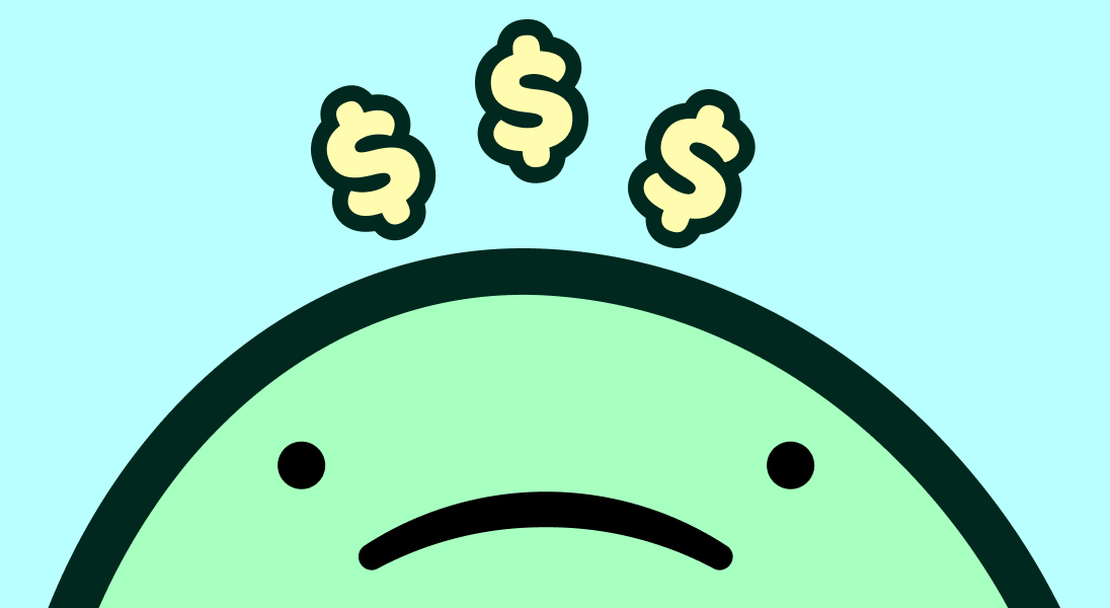
How to Avoid Buyer’s Remorse: A Guide to Smarter Shopping Decisions
-
Beatriz Macuco
- March 1, 2025
Table of Contents
Is Buyer’s Remorse Normal? Yes—And Here’s How to Avoid It
Is buyer’s remorse normal? Absolutely—we’ve all felt it. You make a purchase, convinced it’s a great idea, only to regret it later. Maybe it was an impulse buy, something too expensive, or just something you didn’t really need. We touched on this topic before when discussing retail therapy—a term used to describe shopping as a mood booster—and how it can sometimes lead to regret .
That sinking feeling of buyer’s remorse is completely normal, but the good news is that there are ways to prevent it. In this post, we’ll dive into why buyer’s remorse happens, the common warning signs that you might regret a purchase, and practical strategies to help you shop smarter.
What is Buyer’s Remorse?
Buyer’s remorse is the feeling of regret that kicks in after making a purchase. Whether it’s a spontaneous online shopping spree or a major investment, buyer’s remorse can happen when we realize that our purchases don’t actually add the value we thought they would. It’s a mix of guilt, disappointment, and sometimes frustration.
Common Items We Regret Buying
While everyone’s list of regretful purchases might look a little different, there are some things that people tend to regret more often than others. Here are a few classic examples of items many people end up regretting:
Expensive party dresses: Worn only once, they hang in the closet collecting dust. Luxury cars: While they may provide an initial thrill, they lose value quickly and may not be as practical as we imagined. House gadgets: That one-time-use kitchen tool or fancy home appliance that ends up forgotten in a drawer or cabinet. Of course, these are just some examples. Your list might look completely different. The key is to reflect on what you tend to regret and avoid those purchases in the future.
Signs You Might Regret a Purchase
Before you hit that “Buy Now” button or sign the credit card receipt, take a moment to check for some warning signs that might indicate you’ll regret your purchase later. Here are a few things to look out for:
Rushing to buy before a sale ends: Feeling pressured by a sale is a red flag. If you’re buying something just to take advantage of a deal without thinking about whether you really need it, you’re more likely to regret it later.
Convincing yourself it’s a “good deal”: You might be telling yourself, “It’s such a great deal, I have to buy it!” However, just because something is on sale doesn’t mean you actually need it.
Feeling guilty about spending the money: If you’re already having doubts about the price tag, take a step back and reassess. Guilt often comes with regret.
Telling yourself you deserve it after a stressful day: We’ve all been there, right? You convince yourself that a treat will make you feel better. While a small splurge can be fine now and then, doing this too often can lead to regret when you realize you didn’t need it in the first place.
How to Avoid Buyer’s Remorse
Now that you know what to watch out for, how can you avoid buyer’s remorse altogether? Here are some practical tips:
Take time to reflect: Before making a purchase, give yourself a moment to think it through. Do you really need this item? Is it something that will add value to your life, or is it just a temporary want?
Add it to a wishlist: Having a list of things you actually need (and not just things you want in the moment) can help you avoid impulse buys.
Give it time: If you’re unsure about something, sleep on it. Wait before making the purchase. Often, the urgency will fade, and you’ll realize it’s not something you truly want or need.
Ask yourself if it will make sense in the future: Will you still want this item in a year? Will it serve a purpose, or will it just become clutter? This mindset can help you make better choices when shopping.
Check for emotional triggers: If you’re making a purchase because you’re feeling emotional—whether it’s stress, sadness, or excitement—pause and ask yourself if you would still buy it when you’re feeling calm and rational.
Know your regret purchases: Pay attention to the types of things you’ve regretted buying in the past. Maybe it’s trendy clothes you never wear, expensive gadgets that sit unused, or beauty products that weren’t worth the hype. Being aware of these patterns can help you avoid making the same mistakes.
What to Do If You Regret a Purchase
Even with the best intentions, it happens: you buy something and later wish you hadn’t. If you find yourself facing buyer’s remorse, here are some steps you can take:
Return it: If you’re within the return window, don’t hesitate to send it back. Many retailers offer return policies that allow you to get your money back if you act fast.
Resell it: If you can’t return the item, consider reselling it. Platforms like eBay, Facebook Marketplace, or Depop can help you recoup some of your investment.
Gift it: If you really don’t want it, consider giving it away. You can turn an impulse buy into a thoughtful gift for someone else.
Buyer’s remorse doesn’t have to be a given. By taking the time to reflect on your purchases, watching for signs of impulse buying, and giving yourself space to make thoughtful decisions, you can reduce the chances of regretting what you buy. Remember: smart shopping is all about making purchases that add value to your life, not just fulfilling temporary desires.


